Inside story: How Uber-style coke delivery ring was busted
A drug syndicate which used a “call centre” to connect drug runners with cocaine hungry customers across Sydney fell apart after police found bags of coke and cash inside a taxi.
NSW
Don't miss out on the headlines from NSW. Followed categories will be added to My News.
- Slain crime figure Walid Ahmad relative of drug ring leader
- ‘Mr Big’ Wally Ahmad’s hitman wore woman’s top
- Was ‘Mr Big’ shot dead in payback killing?
A syndicate which used multiple drug runners, including a taxi, to deliver “on demand cocaine” to Sydney’s CBD collapsed after undercover agents infiltrated the exclusive customer list.
The details of how the syndicate operated and was ultimately brought down have been revealed in the Downing Centre District Court as two members were sentenced on Thursday.
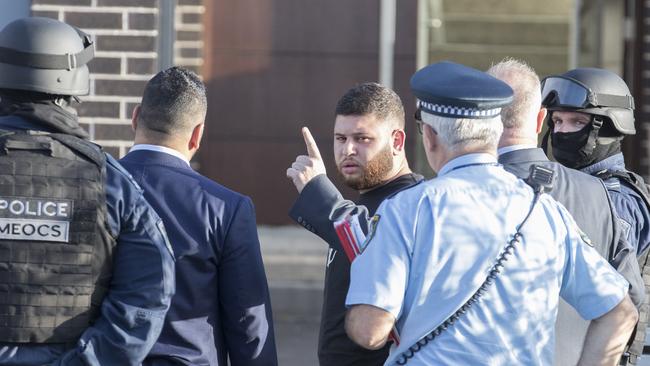
Strike Force Kentgrove was launched following the daylight execution of crime figure Walid “Wally” Ahmad in April 2016.
Authorities knew they needed to get a handle on any retaliatory violence before a full-scale gang war erupted.
But Kentgrove’s undercover operatives began circling back on Ahmad’s own relatives within a year.
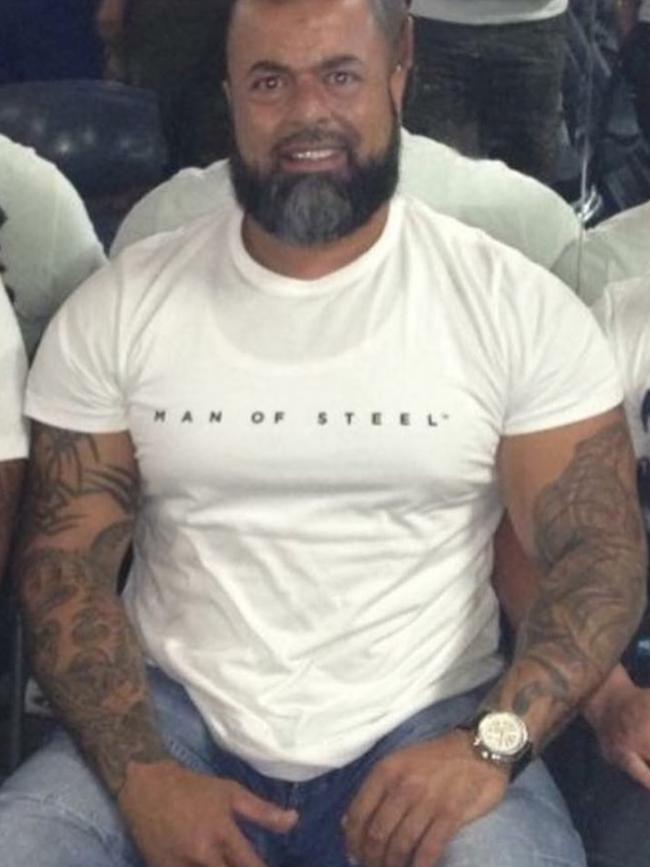
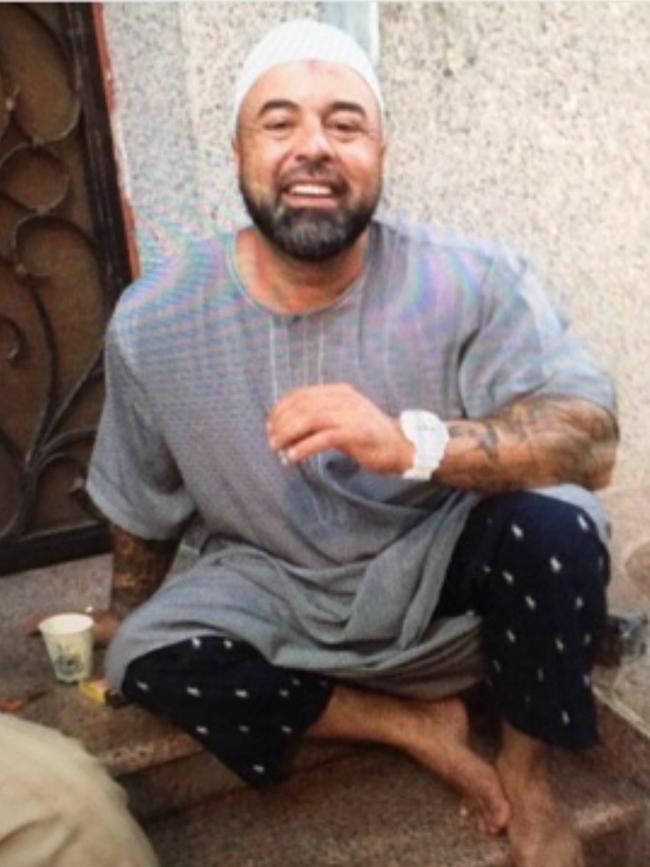
Plain-clothed officers beat the Friday afternoon rush to Ryan’s Bar in the city on April 21, 2017, when a white Mazda pulled up outside, a court heard this week.
Muhammed Khodar Ali Ahmed, then 18, and a second person were in the car.
A woman approached them, looked both ways, and got in, court documents state.
The officers followed and searched the vehicle. They found seven small bags of cocaine, smartphones and $1125 in cash.
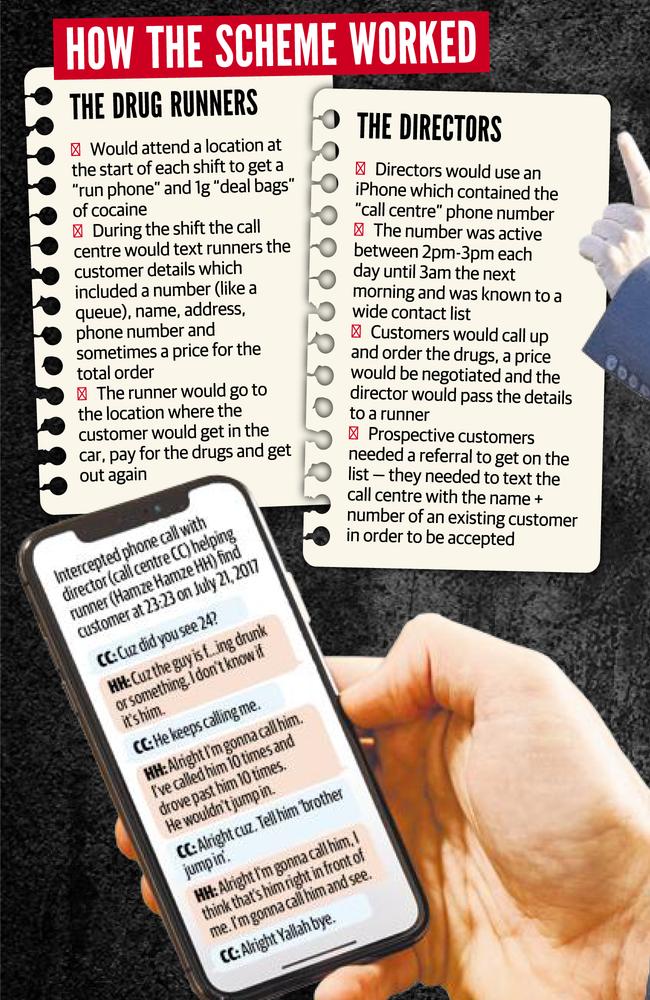
Ali Ahmed, who sources say is related to deceased Walid Ahmad, was given a court notice but it was a sign of things to come.
Months later police intercepted conversations between “directors” of a drug syndicate and their “runners”. Ali Ahmed was a director.
The teenager helped operate the group’s “call centre phone”, which would receive dozens of calls and texts from customers looking to buy cocaine in Sydney each night.
A husband and wife drug running couple allegedly delivered 29.4g of cocaine in a night for the syndicate on August 25, 2017.
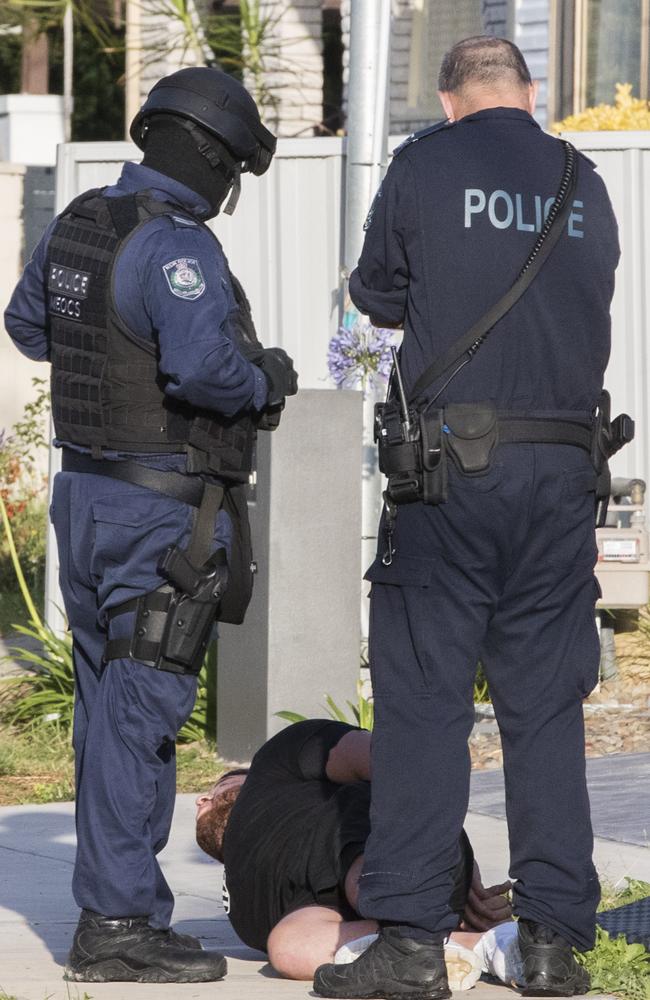
An undercover police operative, with the codename Matt, contacted the call centre and ordered three bags for delivery to trendy Sydney hotel The Flynn.
When the couple arrived in a rental car Matt got in the back, paid $900 and was allegedly given 1.81g of cocaine.
Later that night Ali Ahmed drove his mother’s Hilux to Mascot to help restock the couple after they’d sold the drugs in their possession.
Strike Force Kentgrove upped the ante on Tuesday, September 19, 2017.
Operative Matt ordered six bags for $1600 to be delivered to the Bankstown Sports Club and was told to meet in a cul-de-sac nearby.
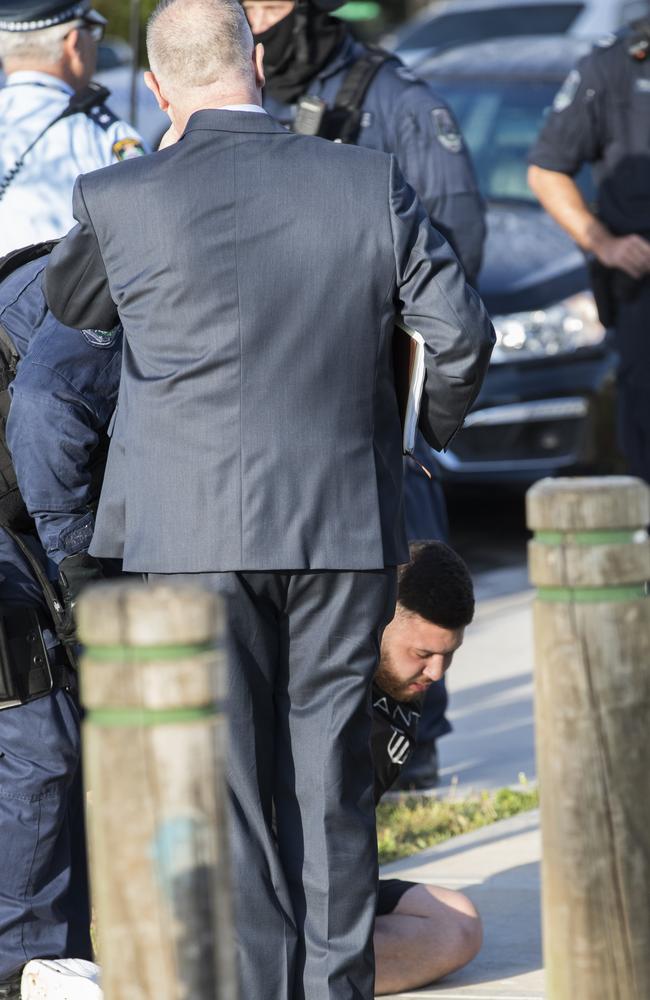
He saw a white Hilux parked on the road with Ali Ahmed and two other men inside.
“You waiting for somebody?” one of the men asked the agent.
Another said Matt looked familiar. The agent replied he was waiting for them.
“Nah man, not us, wrong boys man,” one of the men said.
Matt was texted again to go back to the club. Ali Ahmed drove past before another car showed up and a runner swapped the six bags for $1600 and left.
The syndicate, perhaps worried about police attention, changed its call centre number on September 25.
“HEY GUYS ITS YOUR GOOD OLD FRIEND!!!” a text from the centre began.
“For those off (sic) you that like to PARTY will have our old number saved … that number is no longer in use anymore please DELETE IT!”
But it wasn’t enough. Police quickly began intercepting the new lines.
The net began closing in October when taxi driver and drug runner Hussein Saleh was pulled over with thousands of dollars in cash and bags of cocaine stashed in his taxi.
He too had been selling to undercover agents. He sold an estimated $70,000 worth of cocaine to 473 customers in just 10 weeks, the court heard.
The 45-year-old Lebanese-born father of six would later tell the court he joined the syndicate under pressure from other members.
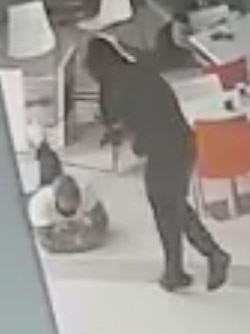
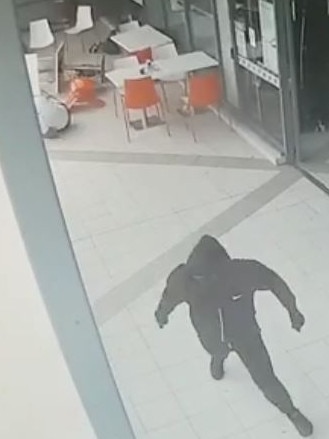
Justice David Arnott heard Saleh periodically used large amount of cocaine to experience “how his brother felt” before he died of a drug overdose in 2014.
But the court found his need to pay back gambling debts had also been a likely motivator in his offending and he had became an “essential link” in the well-organised group.
Ali Ahmed’s past was equally tragic, his legal team of Philip Strickland and Abbas Soukie told the court.
He was sent to live with his uncle as a child while his father battled cancer.
His uncle introduced him to cannabis at age 11 or 12 and his schooling declined.
He was hooked on cocaine by 18 and associating with other members of the syndicate.
Now 20, his lawyers told the court Ali Ahmed had been feeding his habit.
He went into custody with the rest of the gang when heavily armed officers raided multiple properties connected to the syndicate on November 30, 2017.
Ali Ahmed was briefly released on bail days before his father died in June last year. He was married outside prison before returning to custody in October.
Justice Arnott, on Thursday, sentenced Ali Ahmed to four years behind bars for supplying cocaine, taking part in drug supply and directing a criminal group.
His sentence will expire in March 2022 and he will be eligible for parole next October.
Saleh, on Friday, was handed a backdated two-year nine-month sentence for supplying a greater-than commercial quantity of drugs, he will be eligible for parole at the end of this month.
A runner for the syndicate, Hamze Hamze, was sentenced to a 13-month intensive corrections order for drug supply.
When waiting for one of his customers he was recorded saying “Cuz this guy is f**king drunk or something,” while taking directions on the phone.
Some other syndicate members remain before the courts. Others have been sentenced.
